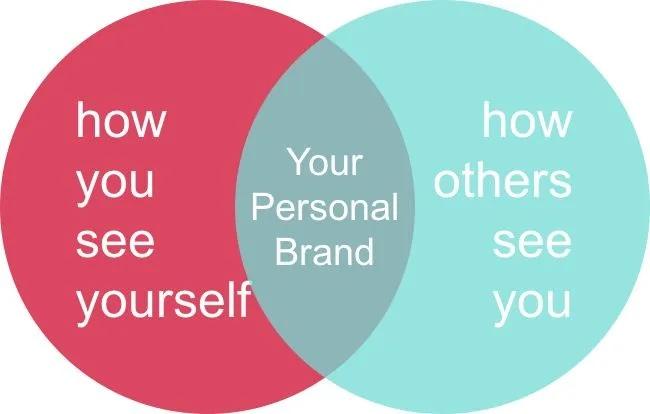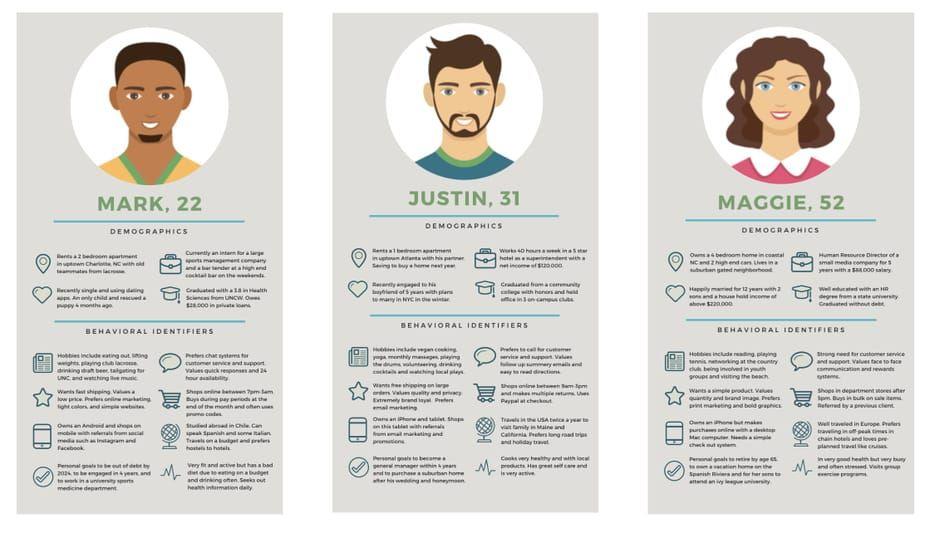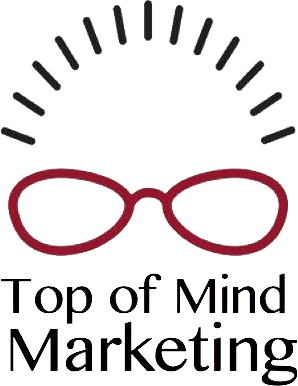What is Personal Branding and Why Is It Important?
The best way to think about branding? Good branding brings in and retains more customers more easily. Bad branding, on the other hand, leaves consumers confused at best, and disappointed or frustrated at worst.
Branding traditionally has been about your packaging, messaging and logo, your overall perception in the marketplace. It’s about trust, responsiveness and the way you treat your clients. It’s knowing that you’ll show up and can be counted on to do a great job.
What is personal branding: Personal branding statement
But branding has evolved. It transcends your products and services, and it isn’t limited to your business anymore. It now includes your unique identity, your personality and reputation. Together, these can set you apart from others in your industry. A strong personal brand can give you a competitive edge and make you more memorable to clients, employers, and colleagues.
What is a personal brand statement?

Oprah’s the goddess of personal branding. She’s continually building equity in her brand, estimated at $2.5 billion. She has always stuck to her core competency: Challenging her millions of viewers to live the best lives possible by understanding their potential. By being true to herself, Oprah has inspired millions to be their best selves.
Or Richard Branson. Smart, rich and wildly successful–a great personal brand
one of the most visible, successful and well-known men of our era. He has stayed true to his core values, seeking adventure and taking some big-time risks. By being himself, he has often done exactly what other business leaders cautioned against. He’s not afraid of crazy publicity stunts like dressing as a flight attendant for a competing airline. His unorthodox style and commitment to his passions have helped him create a powerful personal brand. “Too many companies want their brands to reflect some idealized, perfected image of themselves. As a consequence, their brands acquire no texture, no character and no public trust.” You have to hand it to Branson–this formula has worked well for him!
When you consistently deliver on your promises and showcase your expertise, it can lead to more opportunities, whether it’s landing a job, getting new clients, or building a network of valuable connections.
Creating synergy between who you are and what you do

By building a distinct brand identity, aligning it with your values and passions, you are aligning yourself with new opportunities that synch with your goals.
Benefits of a strong brand
Be someone with whom other people want to work. A strong personal brand enhances your visibility and reach. When your brand is well-defined and consistently communicated, it becomes easier for others to find and connect with you. This can lead to new opportunities, collaborations, and increased exposure.
It also means you can charge more for your products or services. When you establish yourself as an expert in your field, people are willing to pay more for your expertise because you’re able to provide value and help your clients succeed.
Zippia statistics: What is customer perception?
They value consistency and authenticity. And like it or not, we need to be in front of our target audience often. We need to keep reminding people that we’re out there.
- It takes five to seven brand impressions for someone to remember a brand.
- A consistent brand presentation increases revenue by up to 33%.
- 86% of consumers prefer an authentic brand image.
- 82% of customers shop from brands that share their values, and 83% of shoppers prefer to buy from brands they trust.
- 66% of customers believe transparency is one of the most attractive qualities in a brand.
- 78% of customers would rather learn about a company through articles than ads. Think about this one as the costs of online advertising soar and click-through rates go down. Articles give customers valuable information about your company or product, allowing them to form a stronger connection with your brand than they likely would be able to just from an ad. If you’re not blogging, it may be time to start. Talk to use @ jpeischel@top-mindmarketing.com
Psychology of branding
Branding is not just about visuals and messaging; it taps into the psychology of human perception and behavior. Our brains are wired to make quick judgments and form impressions based on limited information. It is important to understand what your target audience wants, needs, and values.
There’s a reason why toothpaste companies show happy people brushing their teeth. Or big brawny football players eating Subway sandwiches, beautiful women selling beauty products and gorgeous clothes, handsome young men driving rugged 4-wheel drive trucks. We want to be like these people! Colors are important in advertising as are words. Think “limited time only”, “on sale now”, etc.
Creating a persona will help identify your ideal client

If you’ve not created a persona, this is a good time to develop one. The persona process is a way to identify the demographics of your target audience. Drill down to the details so you have a clear idea of where your ideal customer lives and works. You’ll identify family, education level and where they take vacations. All of this information together builds a powerful demographic profile.
Identifying the pain
By aligning your brand with expectations, you have a better chance of making a strong connection and building trust. This requires a deep understanding of your target audience’s pain points. The pain point is always about reaching your client on an emotional level. What is it that is causing the most anxiety? Is it meeting deliverable dates due to staff shortages or trying to provide a new service that they’re really not equipped to deliver. If this is the case, your potential client may be in the market for your white label marketing services.
People are more likely to remember and trust brands that evoke positive emotions, have consistent messaging, and provide a clear value proposition. By leveraging these cognitive biases, you can shape how others perceive you and create a favorable impression that lasts.
What is your personal brand?
Building a personal brand is a deliberate and strategic process. Here are some steps you can take to establish and grow your brand:
- Identify your core values, strengths and unique selling points. Think about how you stand out from others and how you can leverage those qualities to create value for your target audience.
- “Why should someone choose you over others?” Answer this story succinctly and sincerely. Develop a compelling brand story that includes your goals and values. This story should be authentic, relatable and resonate with your target audience.
Client perception and how it affects your brand
- Conduct market research to understand your target audience’s needs, preferences, and pain points. This will help you tailor your brand messaging and positioning to align with their expectations.
- Seek feedback. Take constructive criticism positively and make necessary adjustments to improve your brand’s image. Your personal brand includes how others perceive you.
Building relationships through branding
- Building relationships is at the core of personal branding. Networking, both online and offline, is a powerful tool for expanding your reach and connecting. Attend industry events, join professional associations, and actively engage on social media platforms to build relationships with influencers and potential clients.
- Create valuable and informative content that addresses your target audience’s pain points and positions you as an expert in your field. This will attract followers, build trust, and establish you as a thought leader.
Rebranding as part of your personal branding?
- Rebranding is a strategic decision. It may be considered if your current brand no longer aligns with your goals, values, or target audience. If you’re reaching out to another industry sector or business, it well may be the right thing to do. Rebranding can be a powerful tool for revitalizing your personal brand, but it should be approached with caution.
- Conduct thorough market research and seek professional advice.
- Do some googling and see look at how other companies in your sector are branding themselves.
- Analyze the potential risks and benefits of rebranding and ensure that it aligns with your long-term objectives.
Tools and resources for personal branding
Building a personal brand requires tools and resources.
- Social media platforms: Utilize platforms like LinkedIn, Twitter, and Instagram to showcase your expertise, connect with industry professionals, and engage with your target audience. Join groups on these applications and become a participant.
- Website or blog: Write blog and post to your website to establish your online presence and share valuable content with your audience. Think about content curation:
Branding mistakes
Some common branding pitfalls to avoid include:
- Inconsistency: Inconsistent branding can confuse your audience and dilute your brand’s impact. Ensure that your messaging, visuals, and tone of voice are consistent across all platforms and touchpoints.
- Lack of authenticity: Authenticity is a term that is used a lot these days—to the point where it’s lost some of its meaning. It’s about being true to yourself and your own values. It’s key to building trust and lasting relationships because you’re honest with yourself and with others, taking responsibility for your mistakes. Part of authenticity and personal branding for me is to be someone whom people can count on.
- Ignoring feedback: Feedback is invaluable for improving your brand. Embrace constructive criticism and use it to refine your brand strategy and messaging. This can be hard, but it’s the way we learn.
Conclusion
- Building a personal brand requires self-reflection, strategic thinking, and consistent effort.
- Personal branding synchs with your business’ brand.
- Personal branding is not just about promoting yourself; it is about creating value, making meaningful connections, and leaving a lasting impression in the minds of others.

